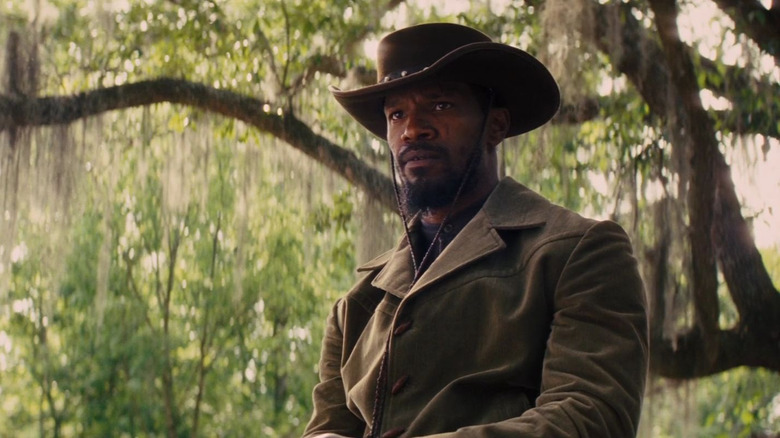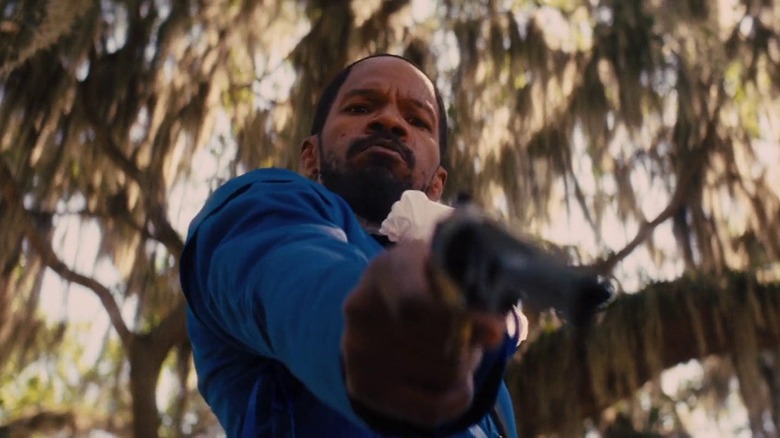Shooting Django Unchained Was An Unsettling Experience For Jamie Foxx
There are some pretty horrifying parts of U.S. history, and Quentin Tarantino's alternate-history revenge epic "Django Unchained" takes a hard look at one of the worst parts of all: chattel slavery in the South. The 2012 film follows Django (Jamie Foxx), a formerly enslaved person working with a German bounty hunter named Schultz (Christoph Waltz) to chase down ne'er-do-wells all over the old West and Antebellum South, turning them in for vast amounts of cash. What Django really wants, however, is to find his enslaved wife Broomhilda (Kerry Washington), who was sold off to the villainous plantation master Calvin Candie (Leonardo DiCaprio). "Django Unchained" is a revenge story that packs a lot of punch, but in order for Django to get his revenge, he also has to suffer a great deal first.
In an interview with Entertainment Weekly in 2012, Foxx discussed the more challenging elements of making the film. Tarantino's dialogue came under fire due to its repeat usage of racist slurs, but that wasn't really an issue for Foxx as much as filming locations were. The words were nothing he hadn't heard before growing up in Texas, but filming on a plantation where real-life enslaved individuals were actually kept, abused, and forced to work was haunting. Foxx (understandably) felt unnerved performing where people had suffered so much, but it made "Django" feel more authentic and made his revenge feel that much sweeter.
Reliving history
Jamie Foxx grew up in the small town of Terrell, Texas, and when he was young, the town was still segregated. He told EW that growing up in that environment taught him what it was like to be ostracized purely on account of his skin color. It also helped him understand why Quentin Tarantino had included such heinous language, which was heavily criticized by others. Sure, it was period and location-appropriate, but it wasn't appropriate in any other context. Foxx knew it intimately, however, having been called racial slurs as a child. There were parts of the South he embraced, but he "understood that [racism] was part of the fabric."
More difficult than the language was filming on the Evergreen Plantation in Louisiana, once a real working plantation. Foxx explained his feelings while filming, and revealed that he took his daughters to the plantation in an attempt to teach them some personal history:
"It was tough shooting the movie. It's tough shooting when you're in plantation row and that's where your ancestors were persecuted and killed, and we were respectful of that.[My daughters] looked at it like an amusement park, but they really understood, especially my older one, that this is where their ancestors came from, and my younger one, like any kid would do, just played around. She didn't understand the significance then. But she will."
His youngest daughter might not have gotten the history lesson that Foxx had hoped for, but his performance in "Django Unchained" became a part of film history, at least? Fans who want to see Django say goodbye to Miss Laura again can stream the film on Paramount+.

